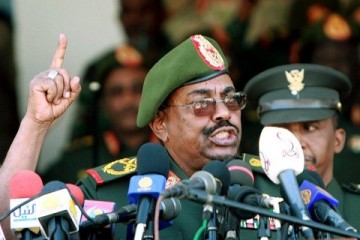Sudan’s ruling party rejects transitional government
August 2, 2014 (KHARTOUM) – Sudan’s ruling National Congress Party (NCP) has hinted at the possibility of forming a broad-based government to implement a national program, reiterating its categorical rejection of opposition calls for the establishment of a transitional government.

He added the NCP would run in the elections along with the political forces that are willing to participate in the process.
Reliable sources from opposition parties in the national dialogue committee known as 7+7 told Sudan Tribune that the NCP expressed reservation on issues of the transitional government and review of elections law while opposition forces demand to discuss these issues before the 2015 elections.
Sudan’s general elections are set to be held in April 2015 but opposition parties threatened to boycott it saying NCP holds absolute control over power and refuse to make any compromise to end the civil war and allow public liberties.
Sudan’s National Elections Commission (NEC) had previously said it received requests from political parties last April to delay elections.
The NEC chief, Mukhtar al-Asam, said they received requests for postponing elections from the Popular Congress Party (PCP) led by, Hassan Al-Turabi, and the National Umma Party led by, al-Sadiq al-Mahdi, due to financial difficulties and the country’s present circumstances.
He said the NEC agreed with these political parties on the possibility for postponing elections until improving their financial position.
Last Monday, Turabi urged the government to delay the elections scheduled for April 2014 to allow political parties contact their bases.
However, after conflicting statements from government officials, president Omer al-Bashir emphasised that there will be no postponement for next year’s elections and even berated NCP officials who suggested otherwise.
A senior source at the NEC on Saturday told Sudan Tribune that “the NCP insists on holding elections in April 2015”.
He pointed the NCP is betting on its good financial standing compared to other political parties as well as its ability to convince some parties to join the process in order to give it the proper legal and procedural form.
The same source noted that elections results would expand political representation base because it will be held according to the proportional representation principle which allows any party to be represented in the parliament by more than one-fifth of its candidates.
He added that a specific number of the parliament seats would be reserved in order to accommodate political forces which will join the peace process after elections.
Last month, the Sudanese parliament passed amendments to the 2008 elections law amid accusations by opposition parties that the government plans to rig the election process through the new law.
Under the amended law, the percentage of proportional representation went up from 40% to 50% with an increase in the minimum allocated for women from 25% to 30% and for the parties representation list from 15 to 20%.
Last January, Bashir called on political parties and rebel groups to engage in a national dialogue to discuss four issues, including ending the civil war, allowing political freedoms, fighting against poverty and revitalizing national identity.
He also held a political roundtable in Khartoum last April with the participation of 83 political parties.
The opposition alliance of the National Consensus Forces (NCF) boycotted the political roundtable, asking the government to respond first to its conditions.
Sudan’s opposition parties propose forming a transitional government and holding a national conference with the participation of rebel groups to discuss a peaceful solution for the conflicts in Darfur region, South Kordofan, and Blue Nile states.
The interim government, in accordance with the opposition platform, would organise general elections once a political agreement on constitutional matters is reached, inaugurating a new democratic regime.
The NCP rejects this proposal saying opposition parties must simply prepare for the 2015 elections and that rebels should sign first peace accords before to join the political process.
(ST)
